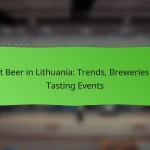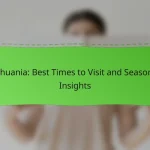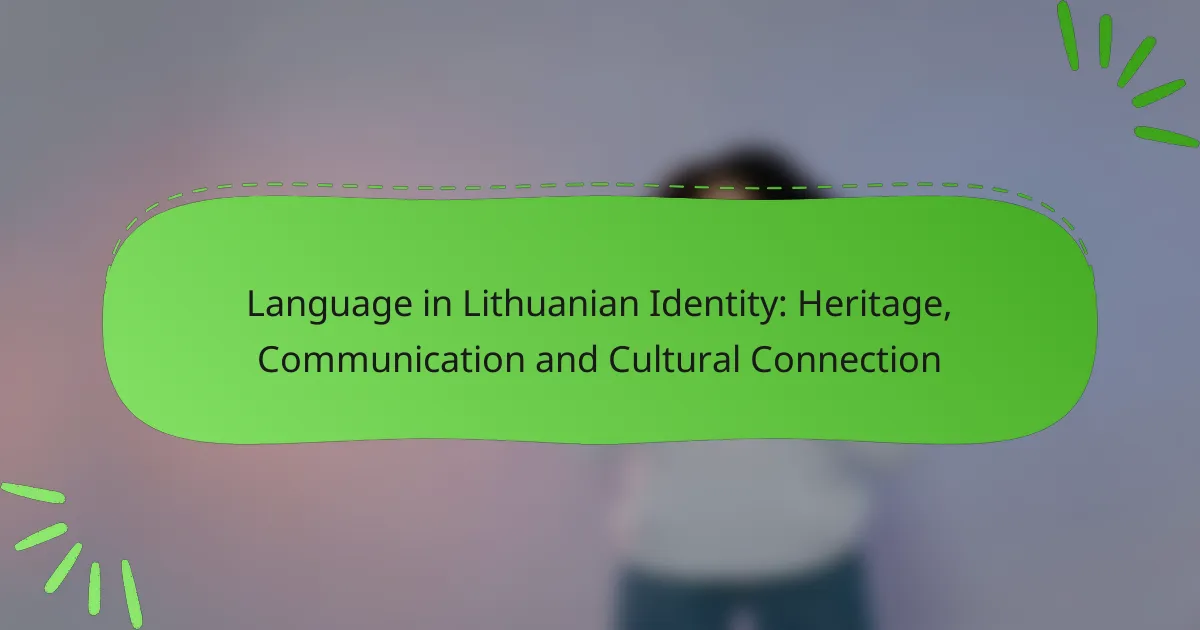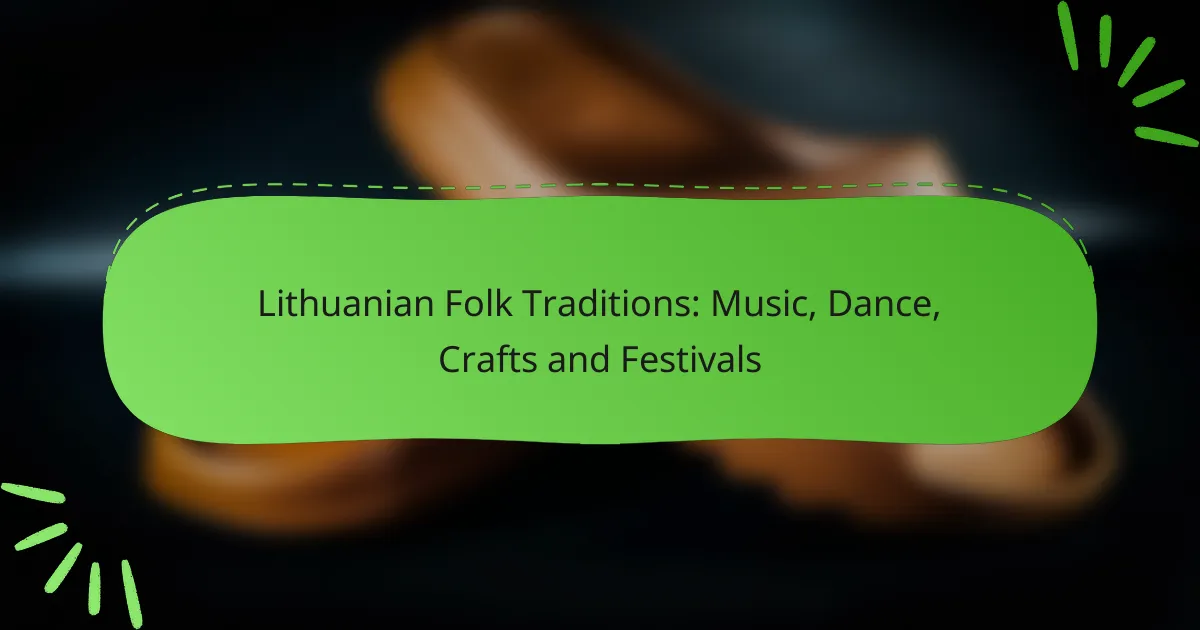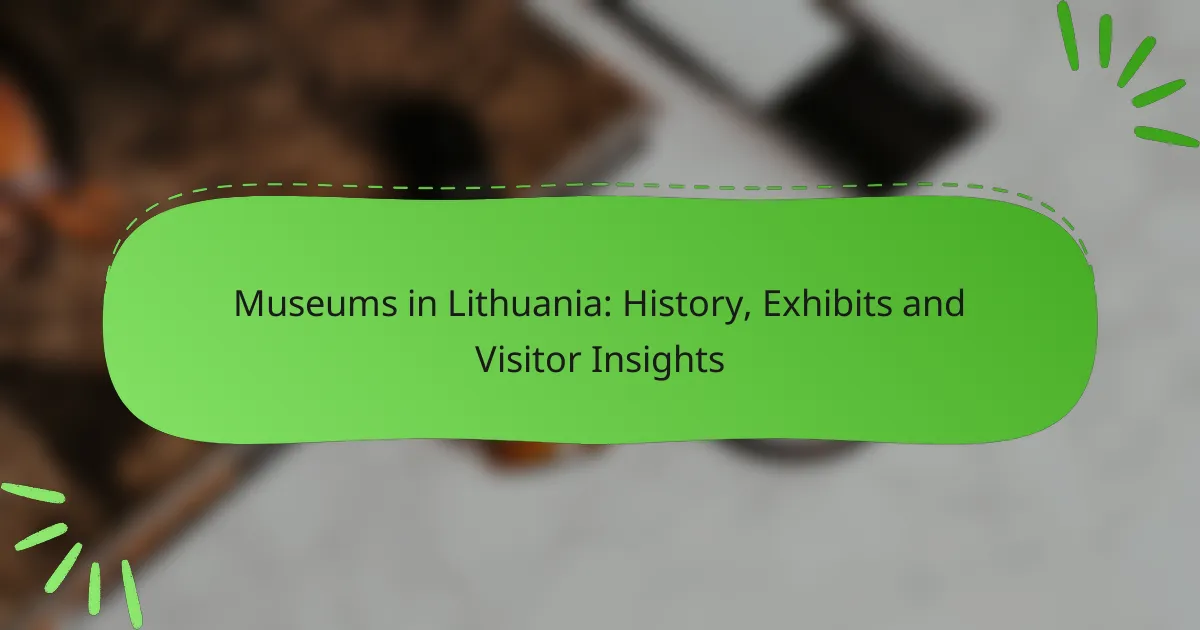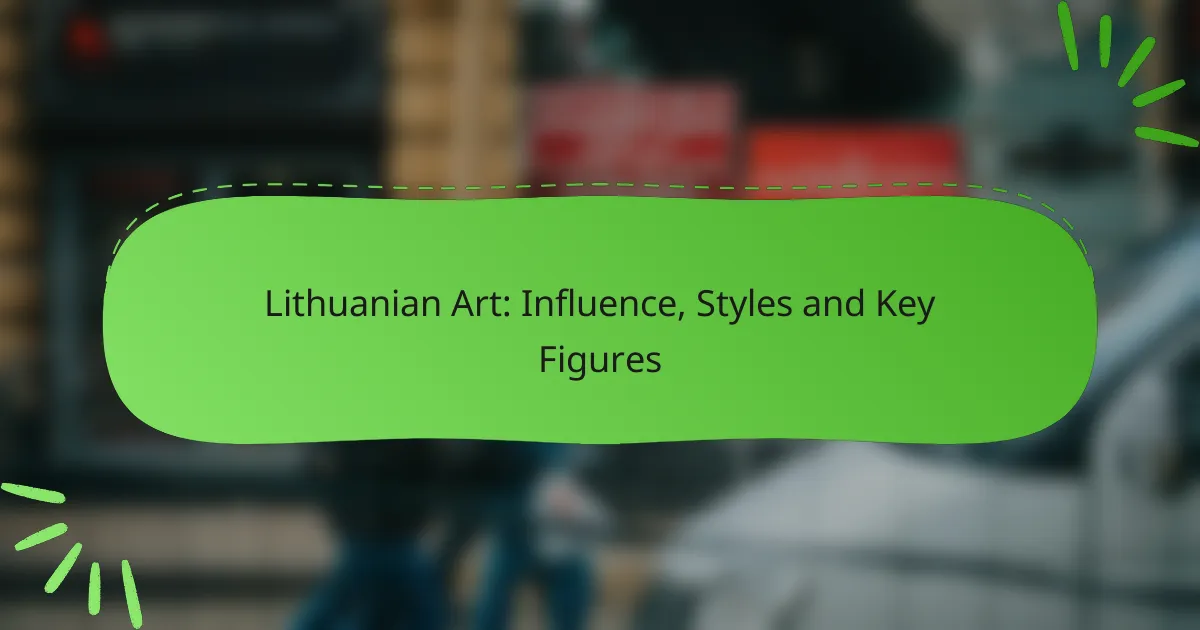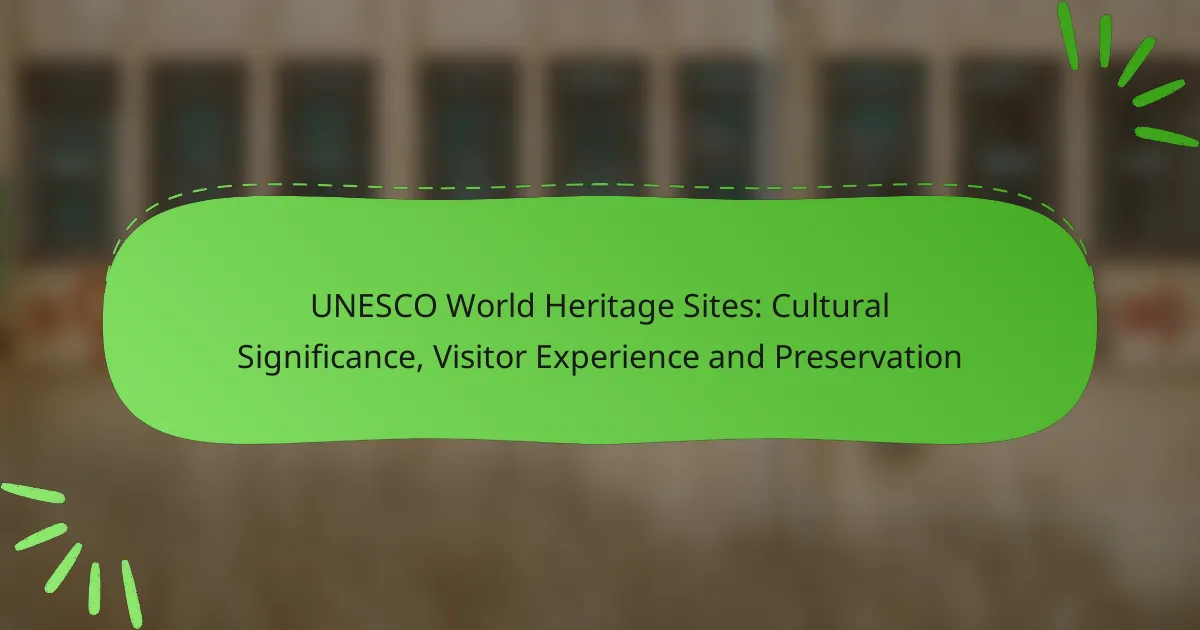Language is a cornerstone of Lithuanian identity, intricately linked to cultural heritage and community communication. It not only connects individuals to their historical roots but also fosters a sense of belonging among Lithuanians worldwide. The preservation and use of the Lithuanian language are vital in maintaining traditions and enhancing interpersonal connections in contemporary society.
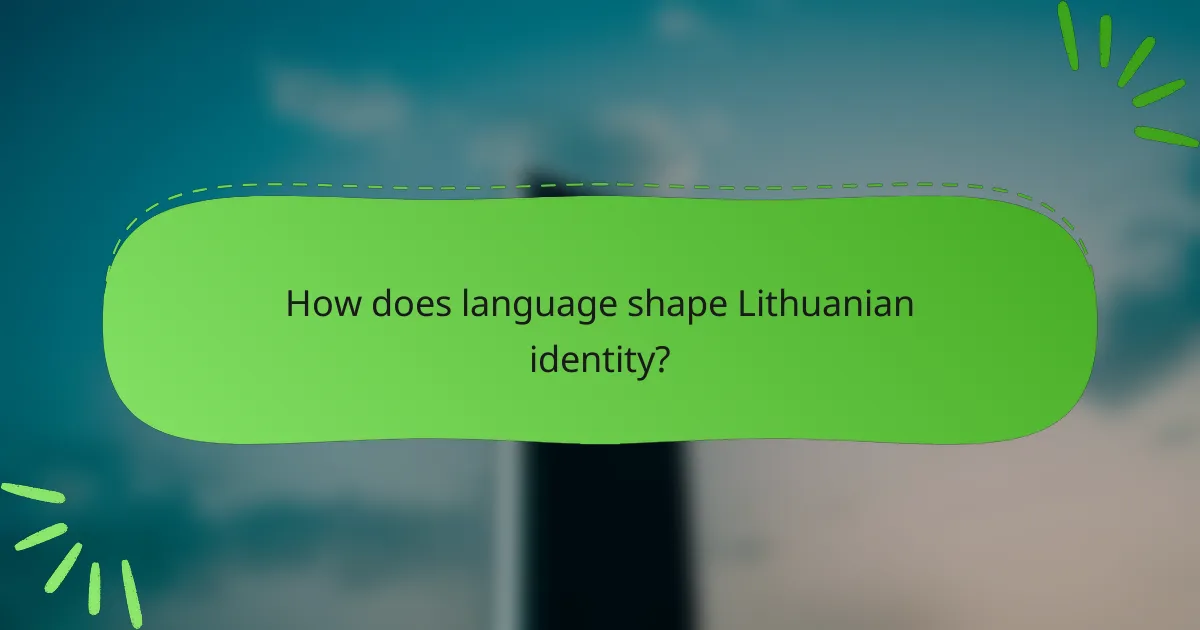
How does language shape Lithuanian identity?
Language is a fundamental aspect of Lithuanian identity, serving as a key marker of cultural heritage and a means of communication that fosters community. It connects individuals to their history and traditions, reinforcing a sense of belonging among Lithuanians both domestically and abroad.
Language as a cultural cornerstone
The Lithuanian language is deeply intertwined with the nation’s cultural identity, representing centuries of tradition and heritage. It is one of the oldest languages in Europe, preserving unique linguistic features that reflect the country’s historical evolution.
Through literature, music, and folklore, the Lithuanian language encapsulates the values and beliefs of its people. Events such as the annual “Lithuanian Language Day” celebrate this cultural cornerstone, highlighting the importance of language in maintaining national identity.
Impact on national pride
Language plays a crucial role in fostering national pride among Lithuanians. The revival of the Lithuanian language after periods of foreign domination has become a symbol of resilience and independence. This linguistic revival has strengthened the collective identity and pride of the nation.
Public campaigns promoting the use of the Lithuanian language in education, media, and public life further enhance this sense of pride. The use of Lithuanian in official settings, such as government and legal documents, reinforces its status as a vital part of national identity.
Role in historical context
Historically, the Lithuanian language has served as a tool for resistance against foreign influences and oppression. During periods of occupation, maintaining the language became an act of defiance, preserving cultural identity against attempts at assimilation.
In contemporary Lithuania, the language continues to reflect the nation’s journey through history. Understanding its role in past struggles helps to appreciate the current emphasis on linguistic preservation and the promotion of cultural heritage in a globalized world.
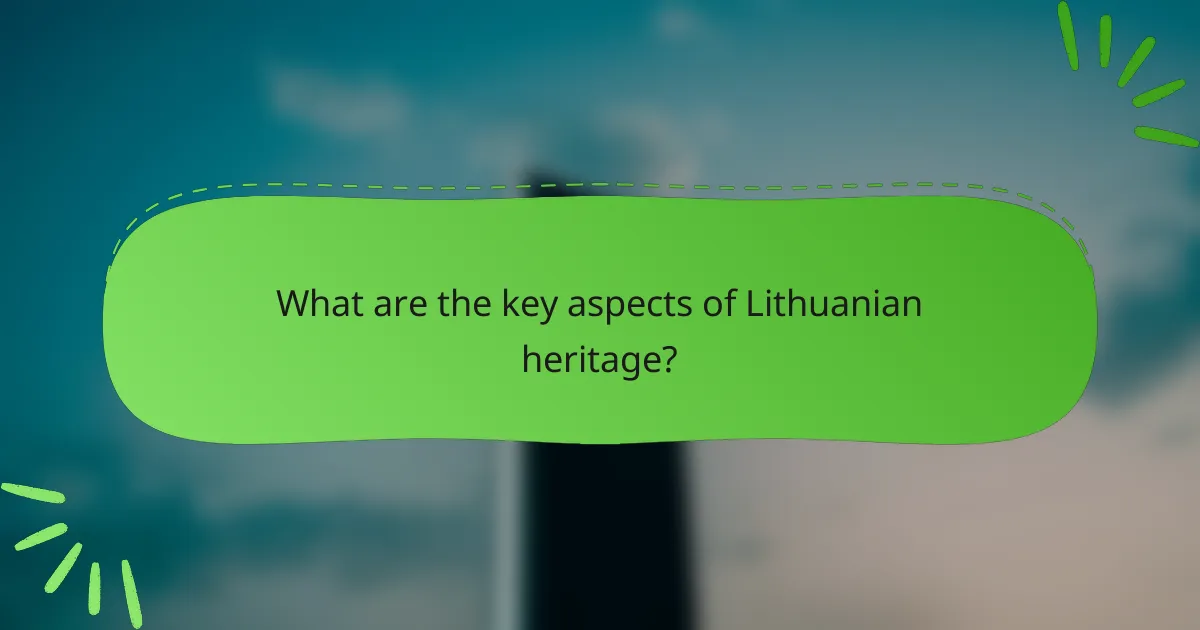
What are the key aspects of Lithuanian heritage?
Lithuanian heritage is characterized by its unique language, rich traditions, and historical influences that shape national identity. Key aspects include the preservation of the Lithuanian language, traditional customs, and the cultural connections that bind communities together.
Historical influences on language
The Lithuanian language has been shaped by various historical influences, including interactions with neighboring countries and cultures. The impact of Polish, Russian, and German languages is evident in vocabulary and syntax, reflecting centuries of political and social change.
Additionally, the language’s roots in the Baltic language group highlight its ancient origins, making it one of the oldest languages in Europe. This historical context enriches the understanding of Lithuanian identity and cultural heritage.
Traditional expressions and dialects
Lithuanian is not only a single language but encompasses various dialects that reflect regional identities. These dialects, such as Aukštaitian and Samogitian, showcase distinct pronunciation, vocabulary, and expressions, contributing to the diversity of Lithuanian culture.
Traditional expressions, including folk songs and proverbs, play a vital role in preserving cultural narratives. They serve as a means of communication that connects generations, reinforcing community bonds and cultural pride.
Preservation efforts in Lithuania
Efforts to preserve the Lithuanian language and its cultural heritage are ongoing and multifaceted. Institutions like the State Commission of the Lithuanian Language work to promote the use of Lithuanian in education, media, and public life, ensuring its vitality for future generations.
Community initiatives, such as language courses and cultural festivals, further engage the public in heritage preservation. These activities foster a sense of belonging and encourage the younger population to embrace their linguistic and cultural roots.
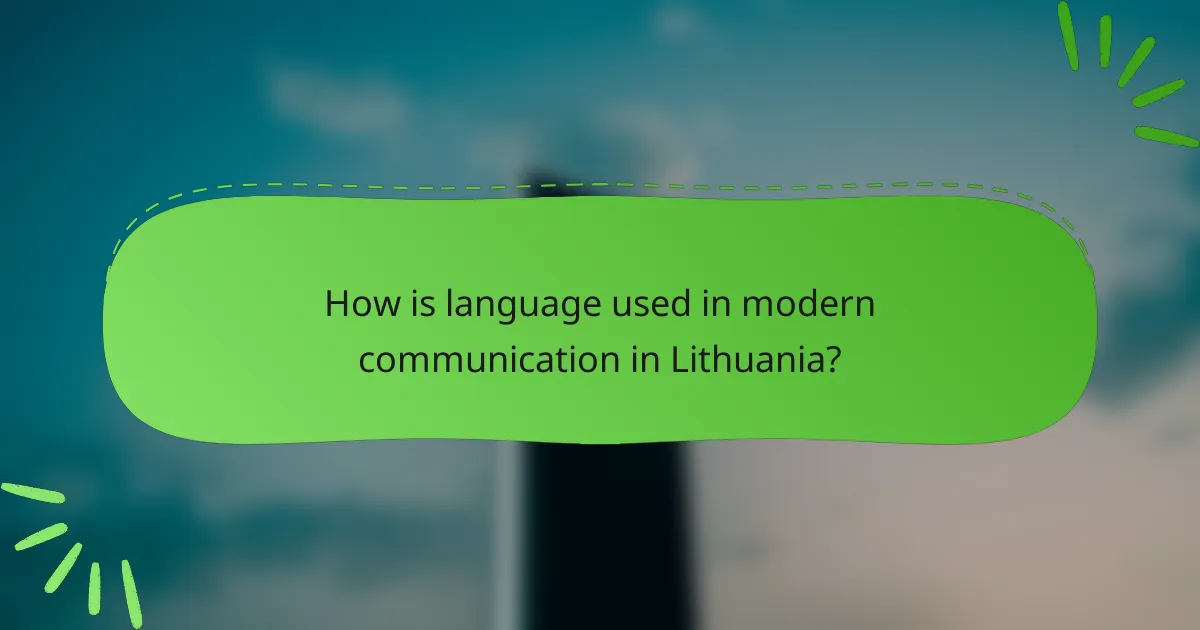
How is language used in modern communication in Lithuania?
In Lithuania, language plays a crucial role in modern communication, reflecting cultural identity and facilitating connections among people. The use of the Lithuanian language is prevalent across various platforms, enhancing both personal and professional interactions.
Language in digital platforms
Digital platforms in Lithuania, such as websites, forums, and messaging apps, predominantly feature the Lithuanian language. This ensures that users can engage with content that resonates with their cultural background. Many businesses also prioritize Lithuanian in their online presence to connect better with local customers.
Moreover, the use of Lithuanian on digital platforms supports the preservation of the language, as it encourages younger generations to engage with their heritage. This trend is evident in the rise of local content creators who produce videos, blogs, and podcasts in Lithuanian.
Influence of social media
Social media has significantly impacted how language is used in Lithuania, with platforms like Facebook, Instagram, and TikTok fostering a vibrant community of Lithuanian speakers. Users often share content in Lithuanian, promoting cultural events and discussions that strengthen national identity.
Additionally, social media allows for the blending of traditional language with modern slang, making communication more relatable for younger audiences. However, this can lead to challenges in maintaining linguistic purity, as new terms and phrases are rapidly adopted.
Language education in schools
Language education in Lithuanian schools emphasizes the importance of the Lithuanian language as a core subject. Students learn not only the language but also its cultural significance, which fosters a sense of pride and belonging. Schools often incorporate contemporary literature and media into their curriculum to keep the language relevant.
Furthermore, there are initiatives to promote bilingual education, where students learn in both Lithuanian and another language, such as English or Russian. This approach helps students navigate a globalized world while maintaining their linguistic heritage.
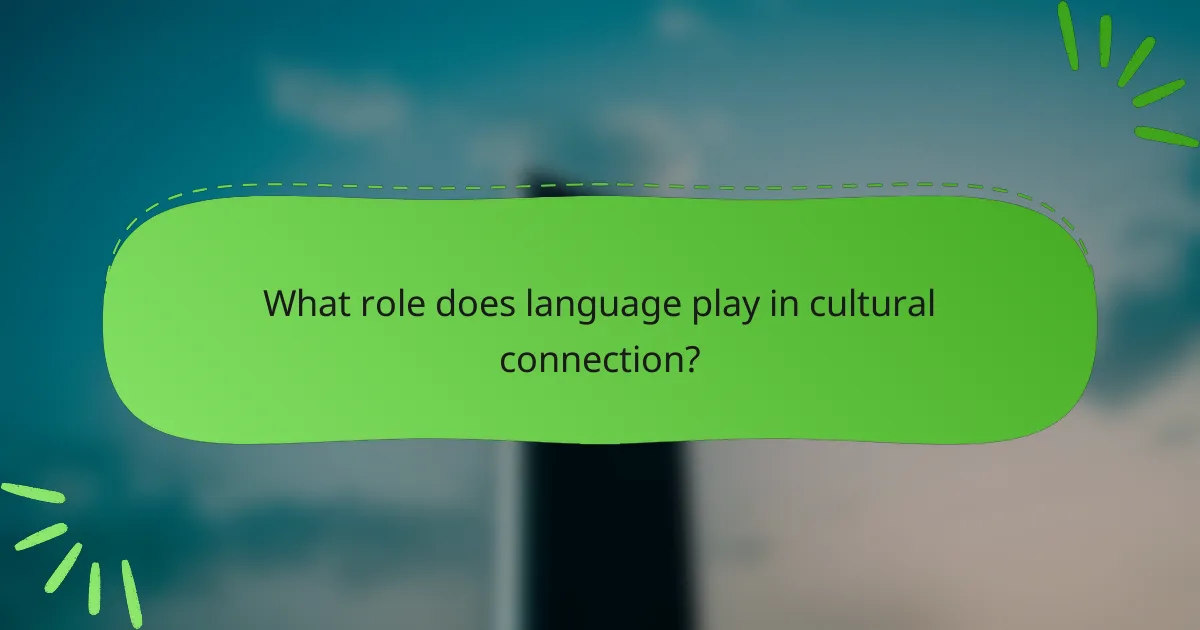
What role does language play in cultural connection?
Language serves as a vital link in cultural connection, embodying shared values, traditions, and identities. In Lithuania, the Lithuanian language is not only a means of communication but also a symbol of national pride and unity among its people.
Language as a unifying factor
The Lithuanian language acts as a central unifying factor for the nation, fostering a sense of belonging among its speakers. It connects individuals across different regions and generations, reinforcing a collective identity rooted in shared heritage.
Through language, Lithuanians express their unique cultural narratives, which helps preserve traditions and customs. This shared linguistic bond strengthens community ties, making it easier for individuals to relate to one another and collaborate on cultural initiatives.
Impact on community engagement
Language significantly impacts community engagement by facilitating participation in local events and discussions. When people communicate in their native language, they feel more comfortable expressing their thoughts and ideas, leading to increased involvement in cultural and civic activities.
Moreover, using the Lithuanian language in community settings encourages younger generations to embrace their heritage. Schools and local organizations often promote language use in activities, which helps cultivate a vibrant cultural atmosphere and strengthens community bonds.
Language in cultural events
Cultural events in Lithuania prominently feature the Lithuanian language, showcasing its importance in celebrating national identity. Festivals, concerts, and traditional ceremonies often include songs, poetry, and storytelling in Lithuanian, highlighting the language’s role in cultural expression.
These events not only preserve linguistic traditions but also attract participation from diverse age groups. Engaging in such activities fosters intergenerational dialogue, allowing older generations to pass down language and cultural knowledge to the youth, thus ensuring the continuity of Lithuanian heritage.
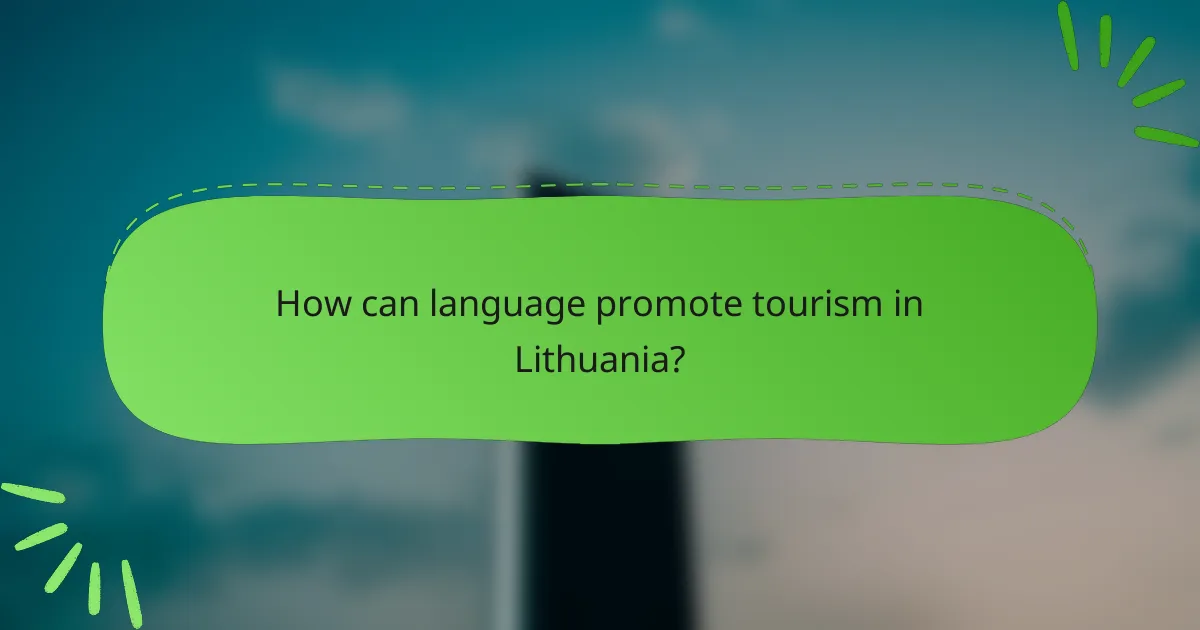
How can language promote tourism in Lithuania?
Language plays a crucial role in promoting tourism in Lithuania by enhancing communication and creating a deeper cultural connection for visitors. By using Lithuanian in marketing and services, tourists can engage more authentically with the local culture and heritage.
Language in tourism marketing
Effective tourism marketing in Lithuania often incorporates the Lithuanian language to attract visitors who seek genuine experiences. Using local language in advertisements, brochures, and online content can resonate with potential tourists, making them feel more connected to the destination.
For example, campaigns that highlight traditional festivals or local cuisine in Lithuanian can spark interest among travelers. Additionally, bilingual materials can cater to a wider audience while still emphasizing the uniqueness of Lithuanian culture.
Guided tours in Lithuanian
Offering guided tours in Lithuanian not only enriches the experience for local visitors but also appeals to tourists interested in immersive cultural experiences. These tours can provide deeper insights into Lithuania’s history, traditions, and landmarks, enhancing the overall travel experience.
Tour operators should consider providing multilingual options, with Lithuanian as a primary language, to ensure authenticity while accommodating international guests. This approach can foster a stronger appreciation for Lithuania’s cultural heritage among tourists.


